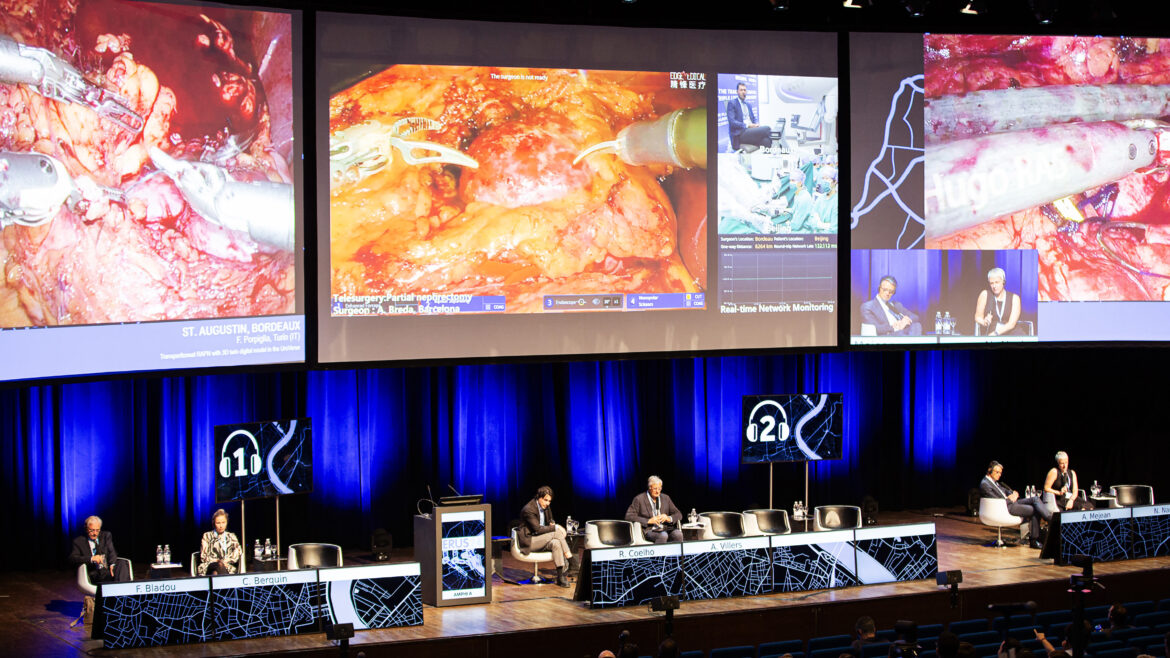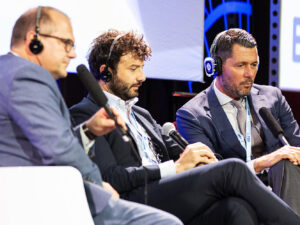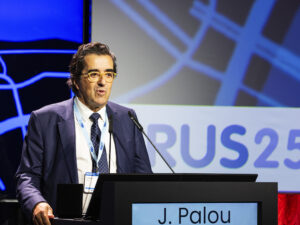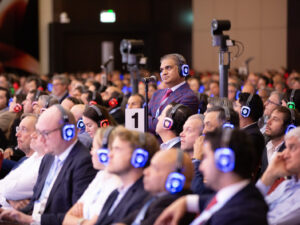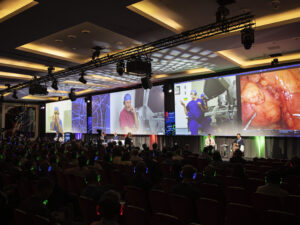ERUS Chair Prof. Alberto Breda is sure that participants will have a world-class experience at ERUS25 in London this September. The diversity of systems on display in live cases, in some cases incorporating telesurgery as well, the expert faculty from across the world and the inspiring location of the meeting all add up to what will be a very successful 22nd edition of the annual EAU Robotic Urology Section meeting, held in London on 10-12 September.
“The headline news this year is that the live surgery scientific programme will feature eight different systems, a new record,” says Prof. Breda. “We also expect two more to be featured in the sponsored Technology Forum, hopefully taking the total to ten featured systems.”
The ERUS25 Scientific Programme features Intuitive’s da Vinci X, Xi, SP and the new 5 systems, the Medtronic Hugo RAS, the MicroPort Medbot Toumai, Edge Medical and SSi Mantra systems. The da Vinci 5, which is not yet available in Europe, will be demonstrated via satellite by Dr. Michael Stifelman in New Jersey (USA).
In terms of faculty, the meeting is more international than ever: “We are welcoming a lot of American experts, more so than usual. The participation of speakers from South and East Asia, and from North Africa also shows the success of ERUS as an international platform.”
“This is also reflected in the sponsorship of the meeting, we are welcoming a lot of new companies. I think it’s an exciting time for robotic surgery, with a lot of new parties and innovations being introduced.”
Article continues after photo
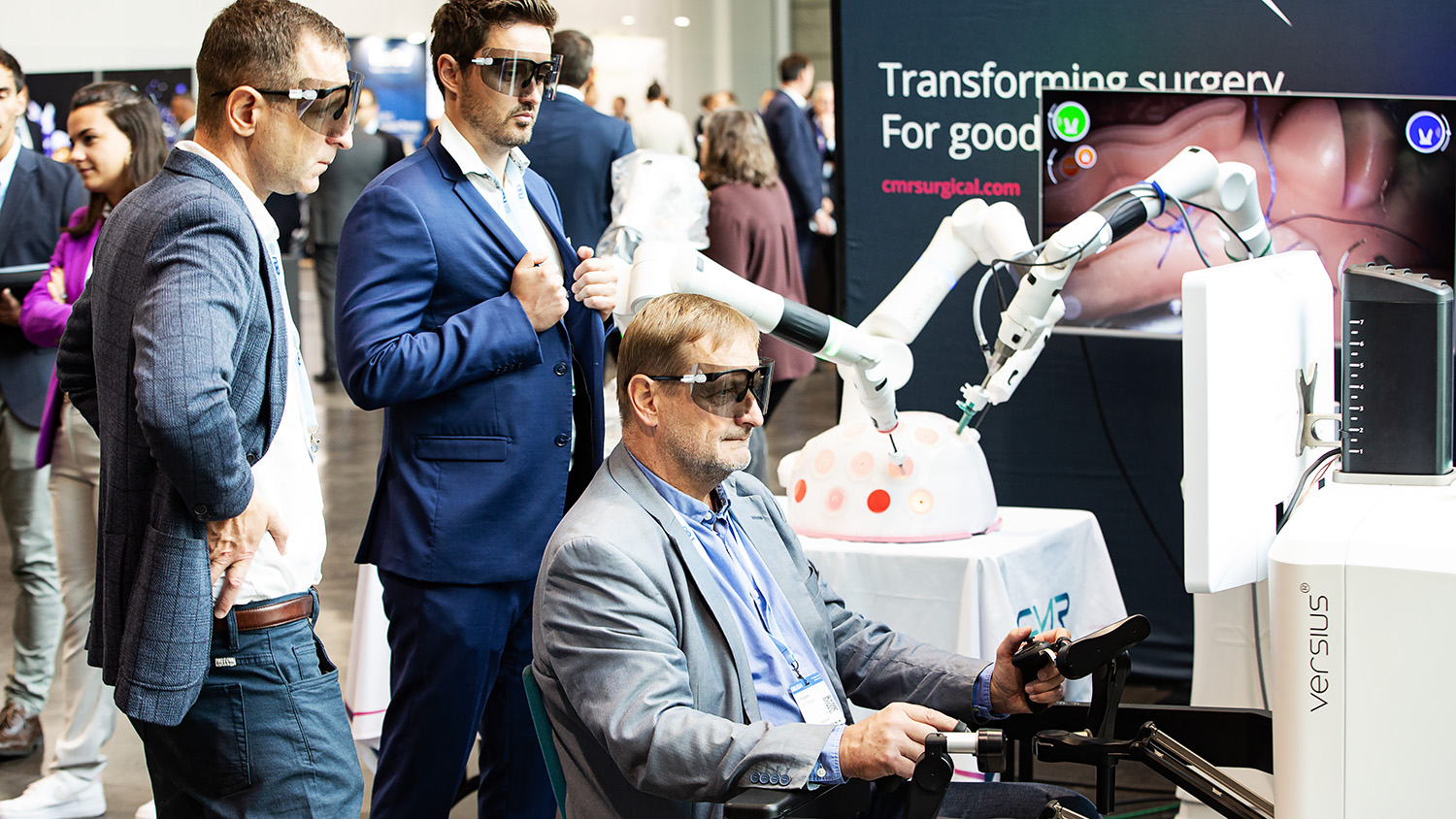
While many robotic systems have been demonstrated at ERUS meetings of the past, ERUS25 is the first time such a diversity of platforms will be featured in the scientific programme and live surgery.
Rapid adoption of telesurgery
The diversity in systems featured at ERUS25 is also accomplished with the use of telesurgery. While some surgical robots are not (yet) licensed for use in Europe, they can nevertheless be included in the scientific programme with the surgeon operating from London on patients elsewhere.
Prof. Breda: “We will have an entire morning of the live surgery dedicated to telesurgery, with at least four live cases. Patients will be in Morocco, India, China, the USA, while the surgeon will be at a console in London.”
While it was only last year that Prof. Breda himself performed the first long-distance procedure at an ERUS meeting, the technology has become rapidly adopted and even commonplace in the meantime.
“Telesurgery is the present, no longer the future. The only thing we as robotic surgeons are still debating is the real benefit: does the patient benefit, the surgeon? Is it a benefit for the healthcare system? Is there even a real benefit? At the moment, the technology allows us to perform such beautiful surgeries, throughout the globe, but that doesn’t necessarily mean that it is useful.”
“But in my opinion it is, and there are many use cases, some of which will only become significant or even possible with the wider adoption of telesurgery. We will be discussing its pros and cons in a dedicated hour-long session, in addition to the remote live cases.”
Surprises
Prof. Breda can give a sneak preview of an unusual topic that will be covered in London: “space surgery”. “As a surprise, I can reveal that we hope to be hearing from people at NASA about how they are taking telesurgery to the next level. The concept of surgery in space, performed by surgeons on the ground will have implications for the future of space travel and we hope to be introduced to this developing concept at ERUS25.”
Other novelties at ERUS25 are the talks on AI and its possible applications in daily practice, both clinically and in the OR. Prof. Breda: “At the Technology Forum we will have at least three AI companies coming to show us what’s possible nowadays.”
“Technology like augmented reality is already adopted into our daily practice, you can see it reconstructive cases too. Upcoming robotic platforms have been designed from the ground up with the integration of AI and we look forward to learning more about this.”
But Prof. Breda also cautions surgeons against over-enthusiasm at the expense of levels of care offered to patients: “While I’m enthusiastic that we will see present and future of robotic surgery in London, we should be careful not to get ahead of ourselves and remain somewhat skeptical.”
“New technology is not a goal in and of itself. It can be great as long as it works, but if it doesn’t, it has the potential to truly become a nightmare. A critical, science-led approach is essential and ERUS25 will certainly offer that.”

Prof. Breda performed the very first demonstration of telesurgery at an ERUS event last year, but one year on it will already be a sizeable part of the the scientific programme, also allowing for more systems to be included.

